如何描述crm系统
-
CRM系统是一种客户关系管理系统,广泛应用于企业和组织中,旨在帮助企业更好地管理客户关系、提高客户满意度、提升销售业绩,并实现持续的业务增长。下面将从系统定义、功能特点、优势、分类等方面向您详细介绍如何描述CRM系统。
系统定义
CRM系统是基于信息技术的解决方案,旨在帮助企业建立和维护与客户之间的良好关系。它将客户资料、交易记录、沟通历史等信息整合在一起,为企业提供全面的客户管理支持,有助于企业了解客户需求、提供个性化服务、预测市场趋势、优化营销策略等。
功能特点
-
客户信息管理: CRM系统可以记录客户的基本信息、购买历史、客户等级等,帮助企业全面了解客户需求。
-
销售管理: CRM系统可以跟踪销售线索、管理销售机会、预测销售额等,帮助企业提升销售绩效。
-
营销自动化: CRM系统支持市场活动管理、邮件营销、客户分群等功能,帮助企业更好地实施营销策略。
-
客户服务管理: CRM系统可以建立客户服务工单、实时响应客户问题、提供在线支持等,提升客户满意度。
-
报告分析: CRM系统可以生成客户分析报告、销售业绩报告等,帮助企业做出数据驱动的决策。
优势
-
客户关系加强: CRM系统帮助企业建立持续、个性化的客户关系,提升客户满意度和忠诚度。
-
销售业绩提升: CRM系统帮助企业精准定位潜在客户、跟踪销售机会,有效提高销售业绩。
-
营销效果提升: CRM系统帮助企业准确了解客户需求,实施更有针对性的市场活动,提升营销效果。
-
数据分析支持: CRM系统可以帮助企业实时了解市场反馈、预测销售趋势,为企业决策提供数据支持。
分类
根据企业的需求和规模,CRM系统可以分为以下几类:
-
操作型CRM: 侧重于客户管理、销售管理等操作性功能,适用于中小型企业。
-
分析型CRM: 侧重于数据分析、报告生成等功能,适用于需要深度数据挖掘的企业。
-
协同型CRM: 侧重于团队协作、信息共享等功能,适用于需要多部门协同的企业。
-
云CRM: 基于云计算技术的CRM系统,可以实现随时随地访问和使用,适用于需要移动办公的企业。
总的来说,CRM系统是一种重要的管理工具,有助于企业提升客户满意度、增加销售额、实现业务增长。企业可以根据自身需求选择适合的CRM系统,有效提升管理效率和竞争力。
11个月前 -
-
CRM系统是一种通过整合、分析和管理客户数据,提高客户关系管理效率以及增强客户满意度的软件系统。在当今竞争激烈的市场环境中,CRM系统已成为企业管理不可或缺的重要工具。
首先,CRM系统能够帮助企业建立客户数据库,包括客户的基本信息、购买历史、沟通记录等。通过这些数据的整合和分析,企业能够更准确地了解客户的需求和偏好,从而制定更具针对性的营销策略。
其次,CRM系统能够帮助企业实现客户信息的集中管理。通过集成各个部门的数据,包括销售、市场、客服等,CRM系统能够让企业全面了解客户在不同阶段的需求和反馈,从而更好地协调各个部门之间的工作,提高内部协作效率。
此外,CRM系统还可以帮助企业提升客户关系管理的效率。通过自动化的流程和任务分配,CRM系统能够帮助企业快速响应客户请求,提高客户满意度。同时,CRM系统还可以通过数据分析和报告功能,帮助企业实时监控销售进展、客户反馈等关键指标,及时调整营销策略。
总的来说,CRM系统是一种能够帮助企业更好地理解客户需求、提升客户满意度、优化营销策略的管理工具。通过CRM系统,企业能够建立更紧密的客户关系,提高市场竞争力,实现长期稳定的业务增长。
11个月前 -
Customer Relationship Management (CRM) systems are software tools that businesses use to manage and analyze their interactions with current and potential customers. A CRM system helps companies streamline their sales, marketing, and customer service processes by centralizing customer data and providing insights that can be used to improve business relationships and drive growth. Here are some key aspects of CRM systems that can be used to describe them:
-
Centralized Customer Data Management:
CRM systems act as a centralized hub for storing all customer-related information, including contact details, purchase history, communication logs, and interactions across various channels. By consolidating this data in one place, businesses can gain a comprehensive view of each customer, enabling them to personalize interactions, anticipate needs, and provide targeted solutions. -
Automation and Efficiency:
CRM systems automate repetitive tasks such as data entry, lead scoring, email marketing, and follow-up reminders, saving time for employees and ensuring consistency in customer communication. Automated workflows help streamline processes and eliminate manual errors, allowing teams to focus on building relationships and closing deals more efficiently. -
Sales and Marketing Alignment:
CRM systems facilitate collaboration between sales and marketing teams by providing a shared platform for tracking leads, campaigns, and customer responses. Integration with marketing automation tools enables businesses to generate and nurture leads, measure campaign performance, and attribute revenue to specific marketing efforts, fostering a unified approach to customer acquisition and retention. -
Customer Insights and Analytics:
CRM systems offer advanced analytics capabilities that help businesses analyze customer behavior, identify trends, and predict future needs. By tracking key metrics such as customer lifetime value, conversion rates, and pipeline velocity, companies can make data-driven decisions to optimize sales strategies, target high-value customers, and maximize revenue opportunities. -
Customer Service and Support:
CRM systems include features for managing customer service inquiries, tracking support tickets, and resolving issues in a timely manner. By enabling customer service representatives to access relevant customer information and communication history, businesses can deliver personalized support experiences, build loyalty, and drive customer satisfaction.
Overall, CRM systems play a crucial role in helping businesses build strong relationships with customers, improve operational efficiency, and drive revenue growth. By leveraging the power of data and automation, companies can enhance the customer experience, increase sales effectiveness, and stay competitive in today's dynamic business environment.
11个月前 -



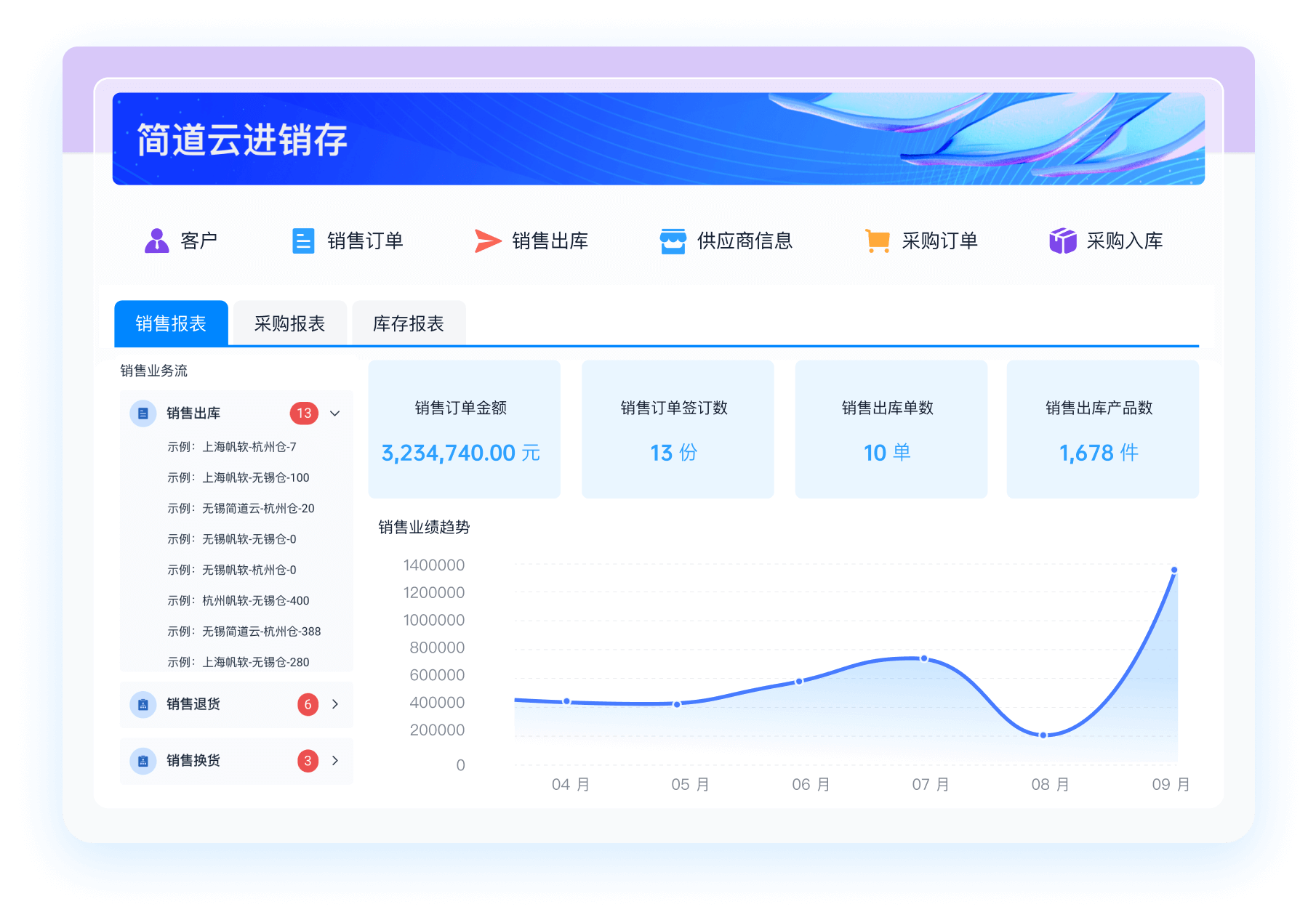
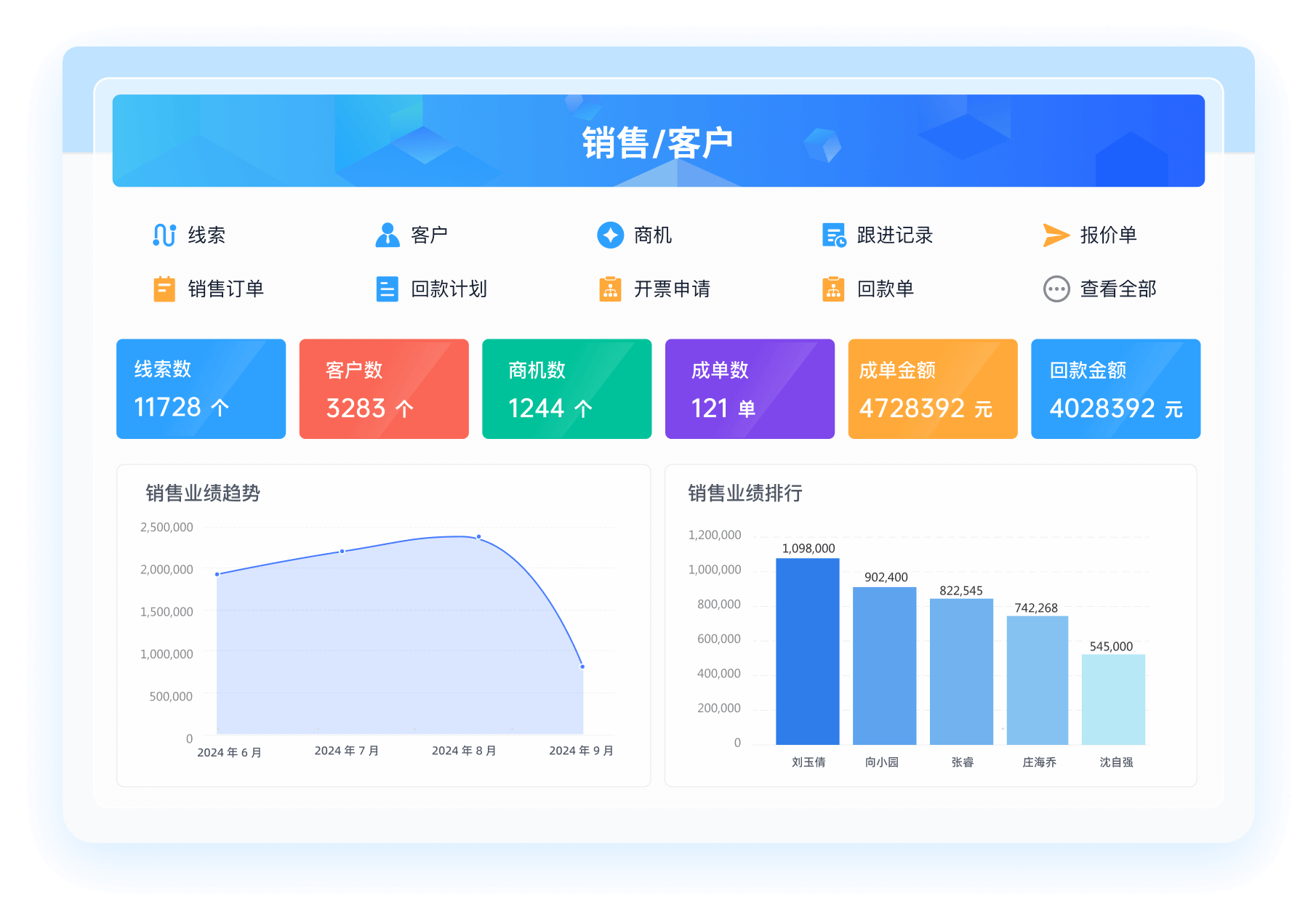
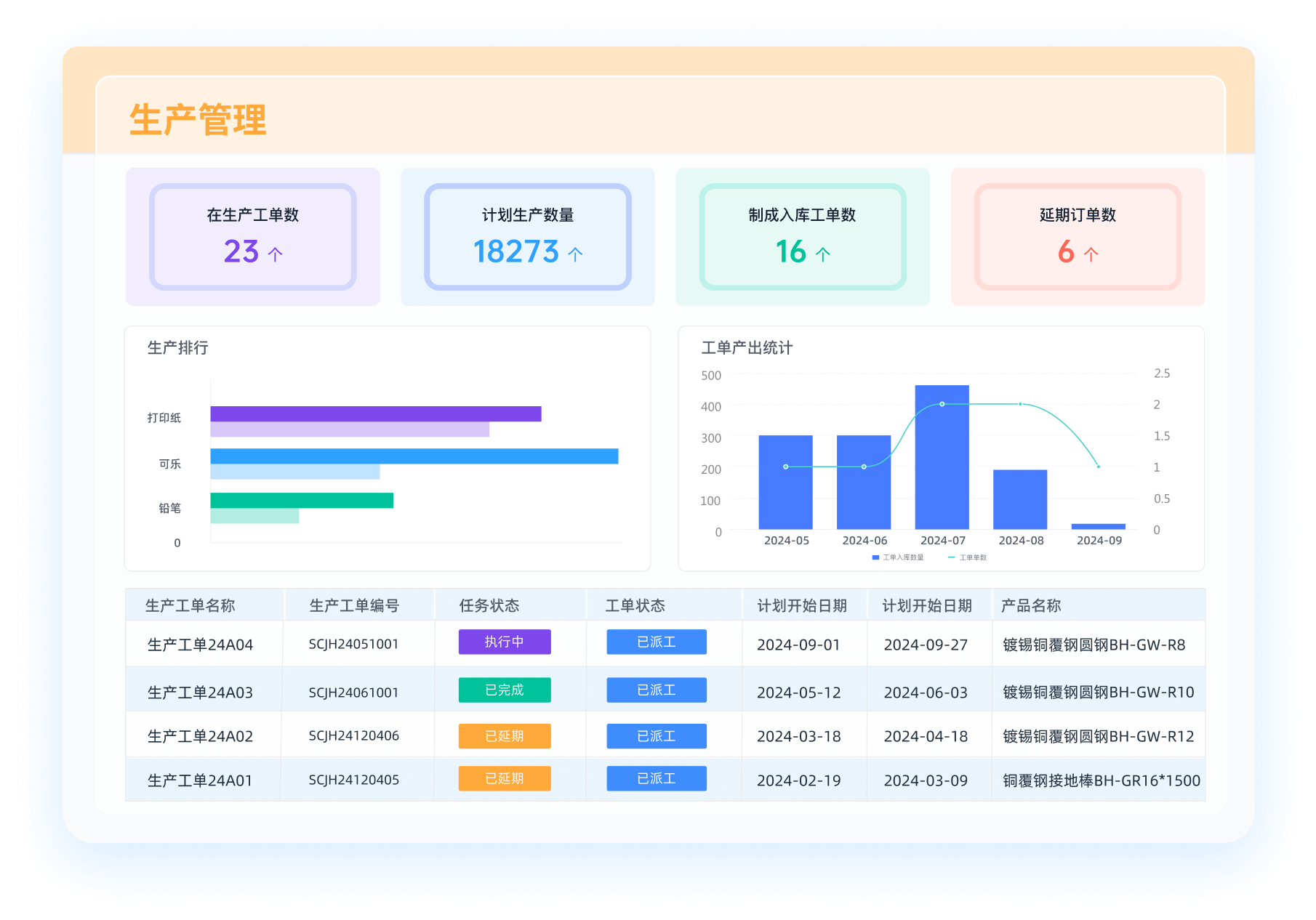
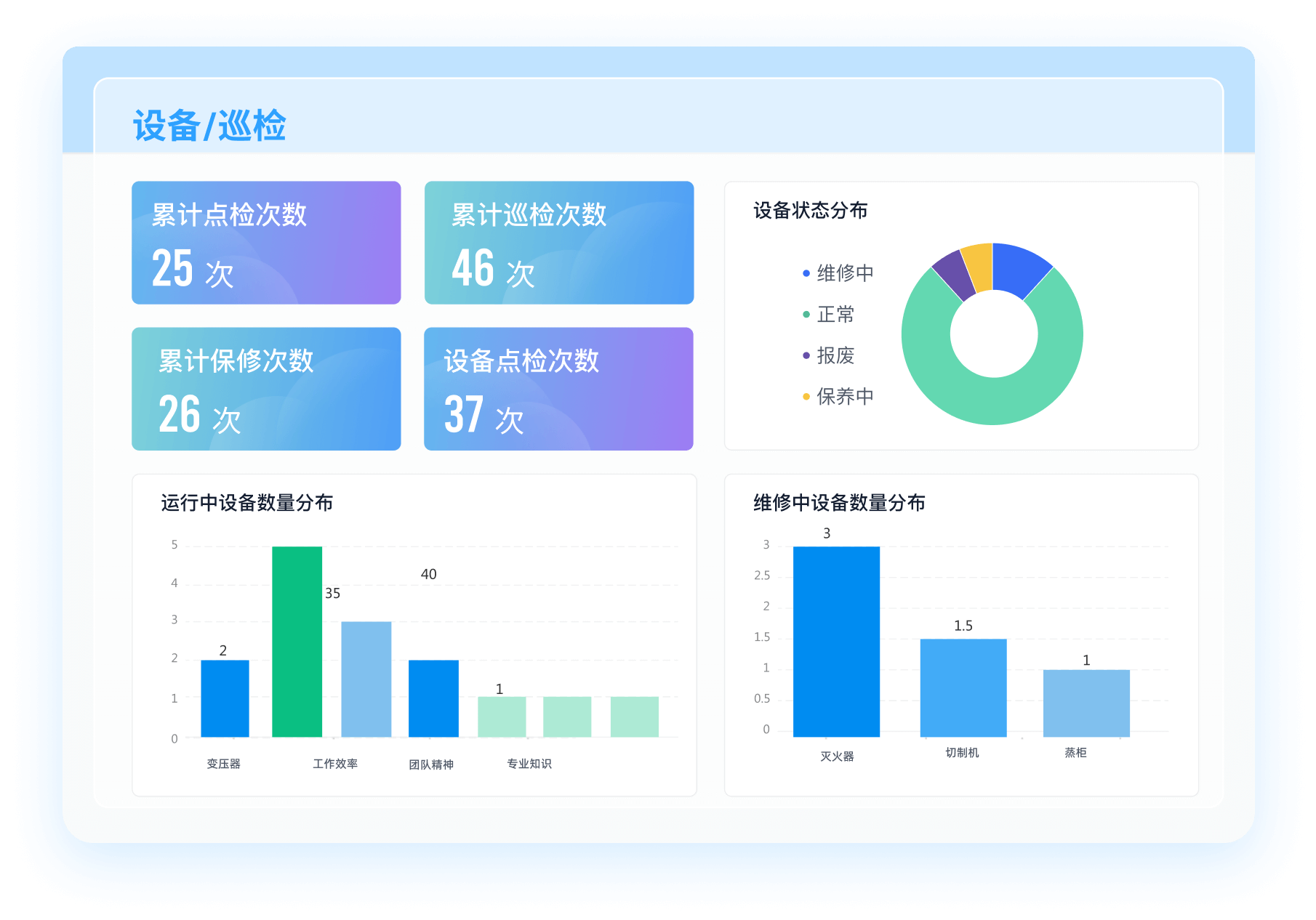
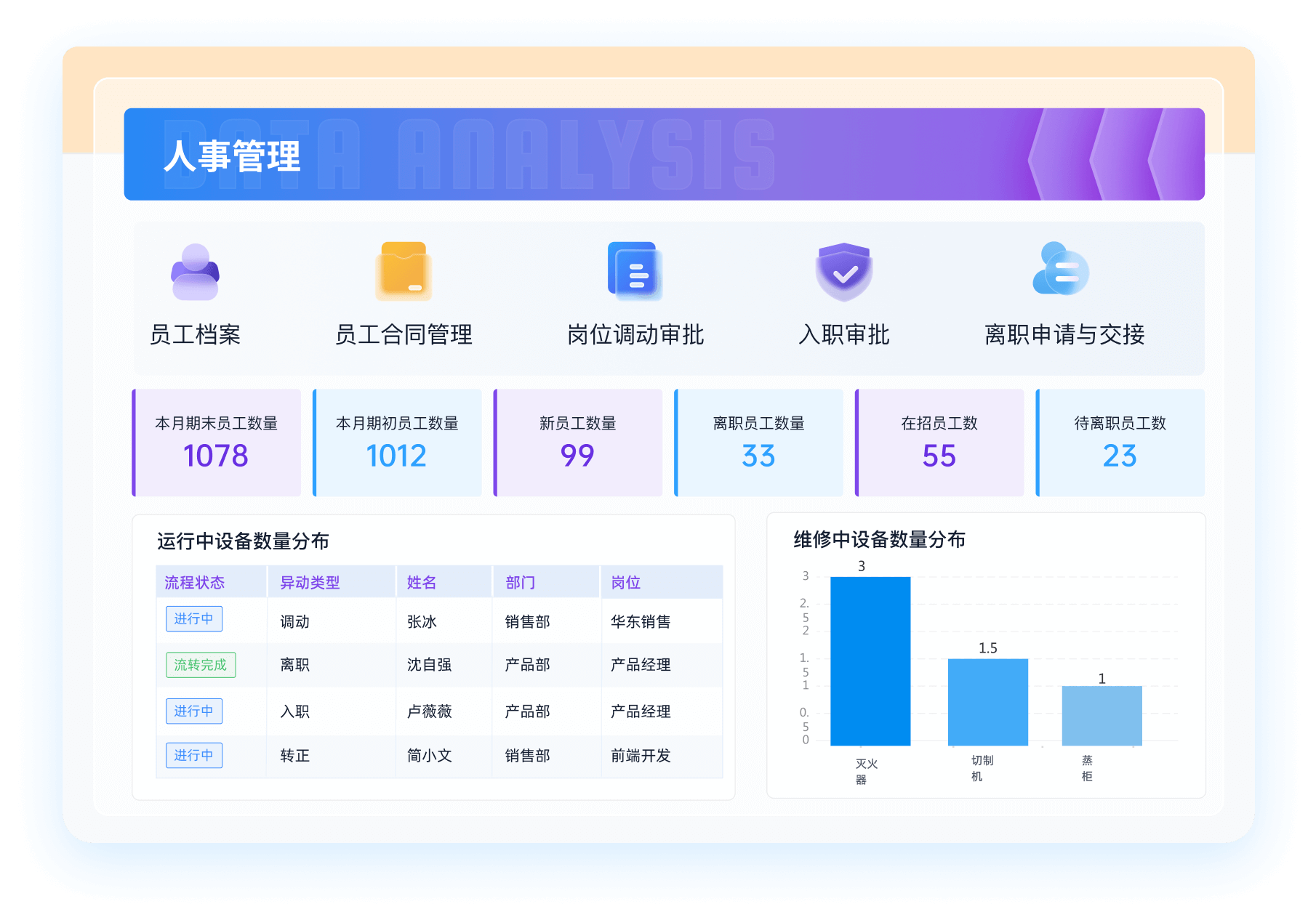
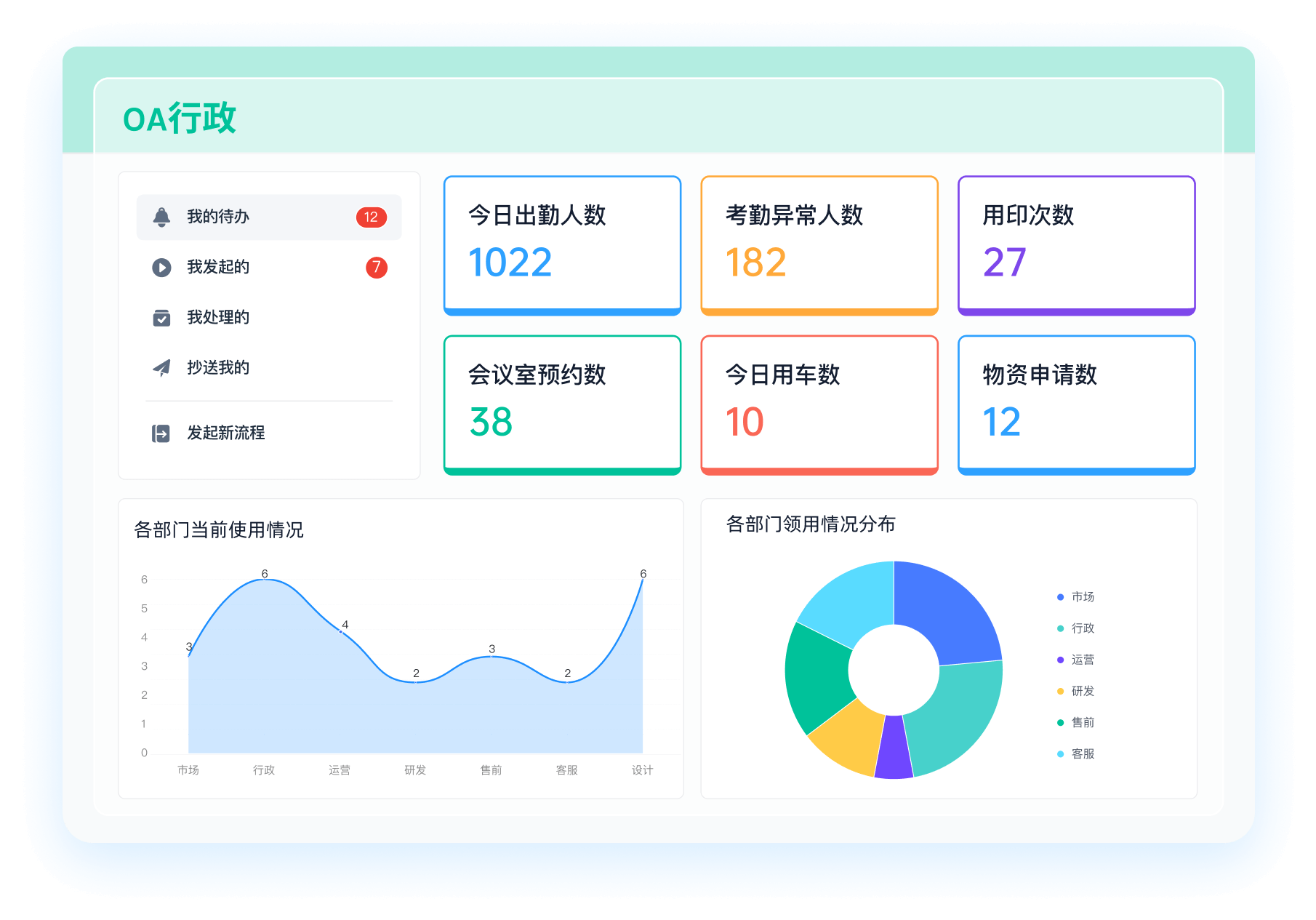
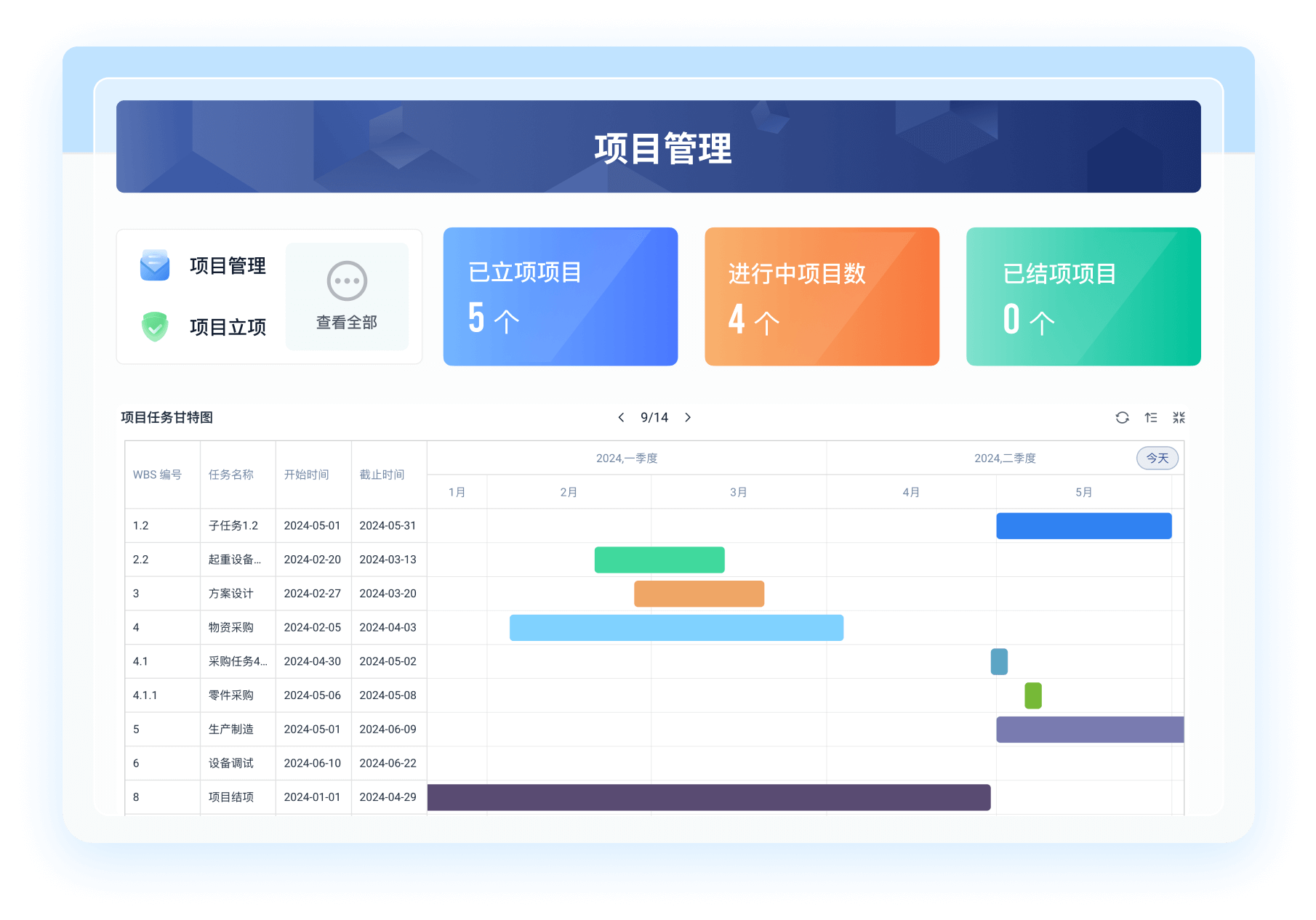
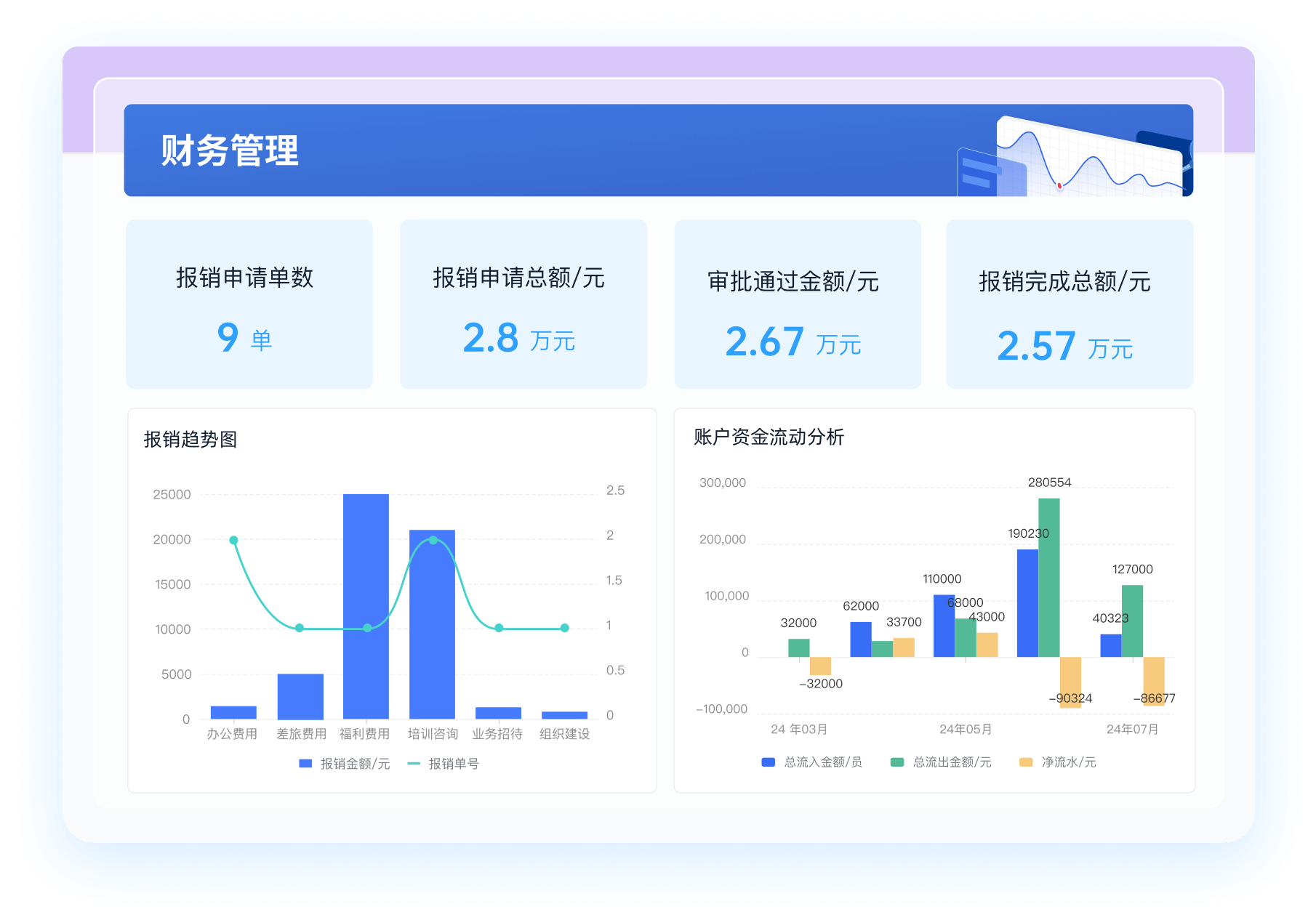
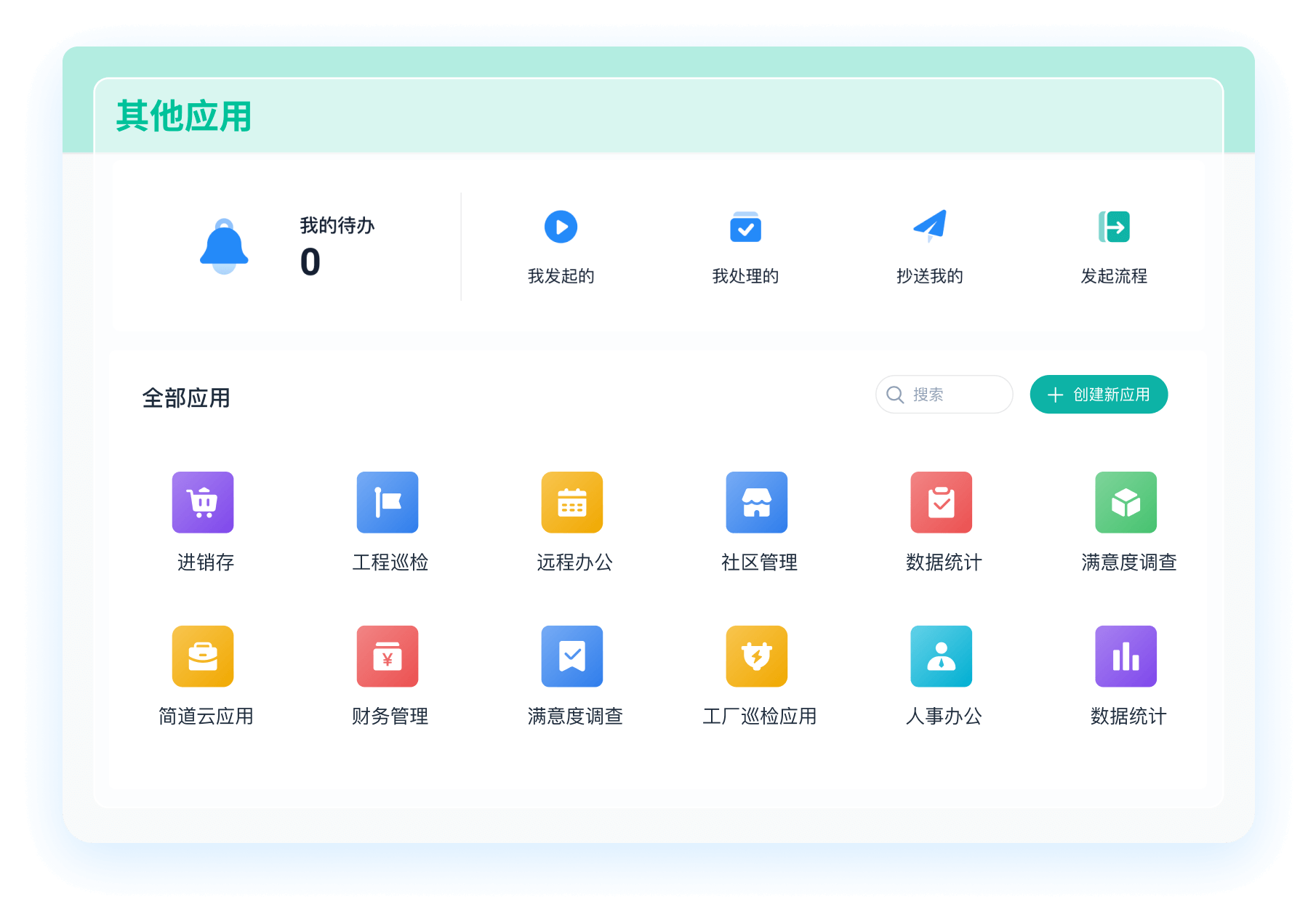
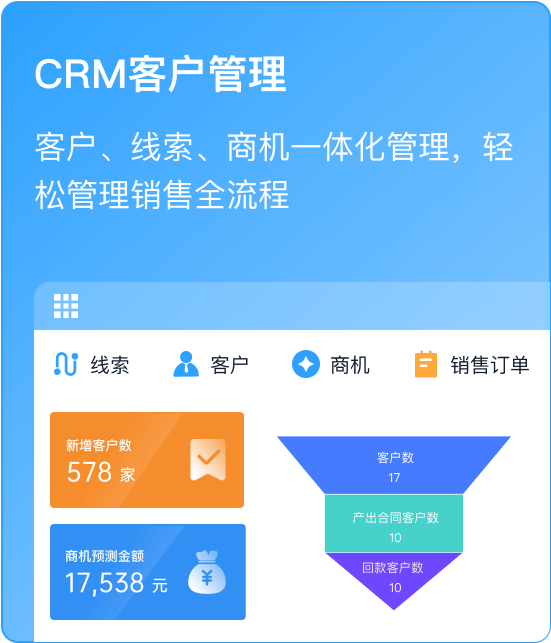

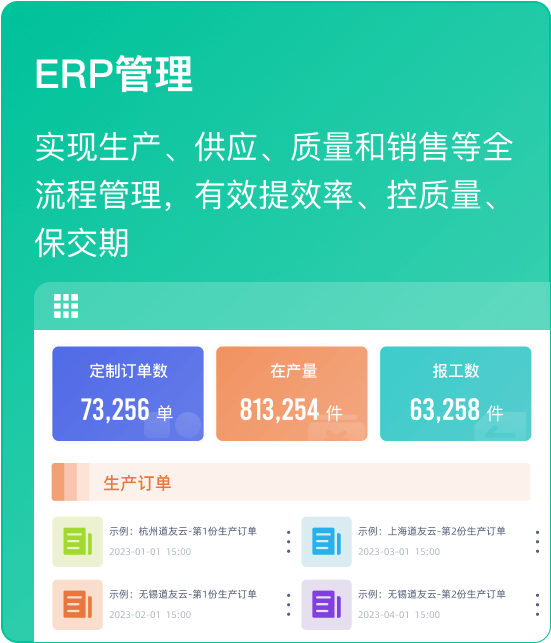
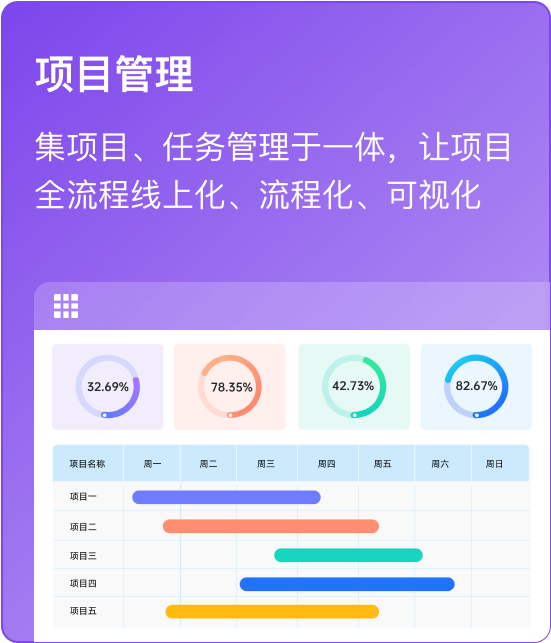
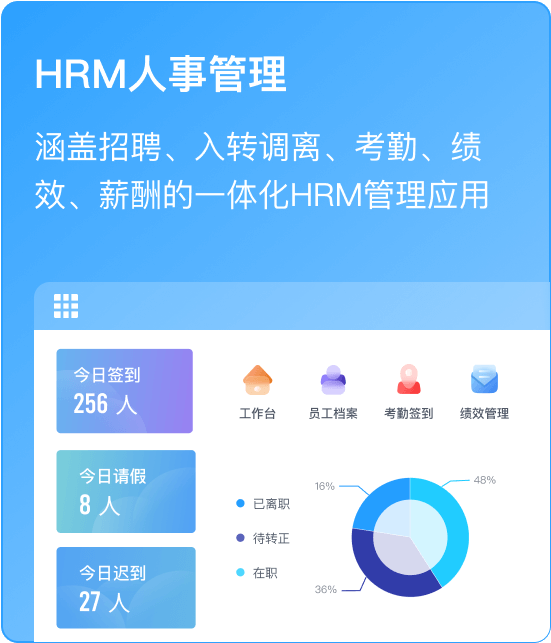
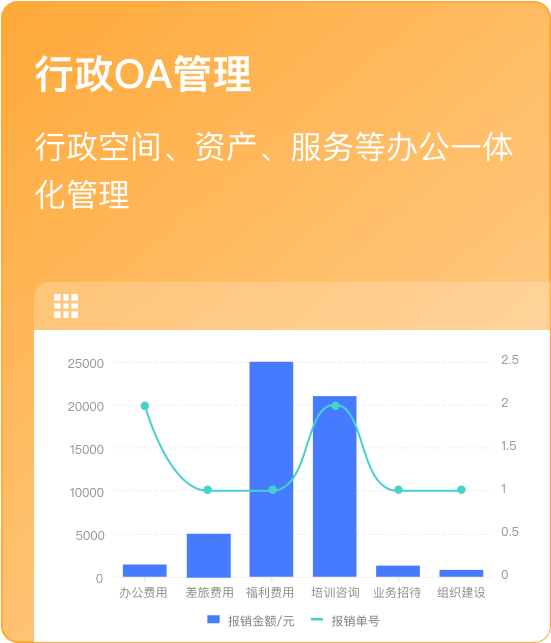

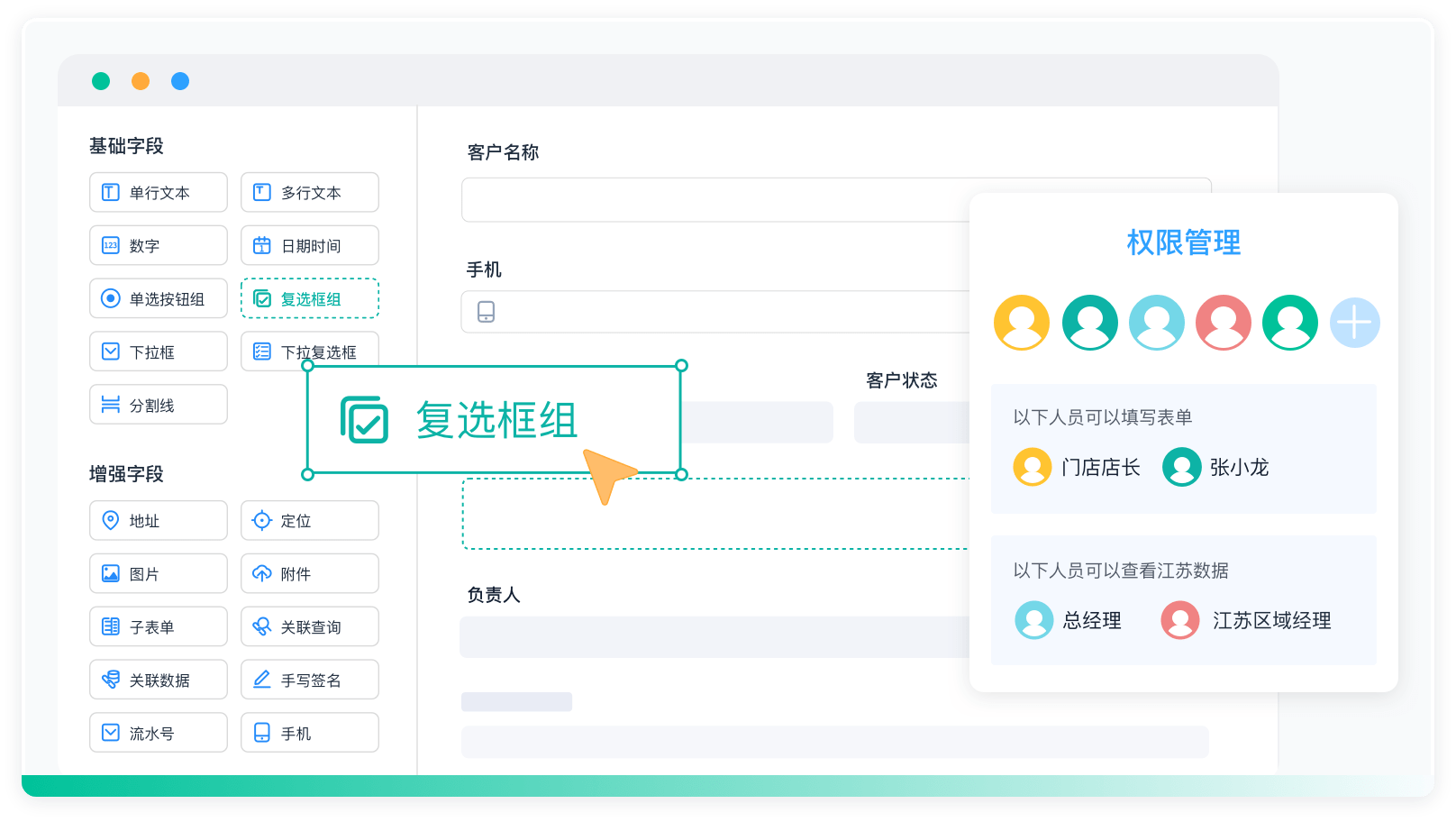
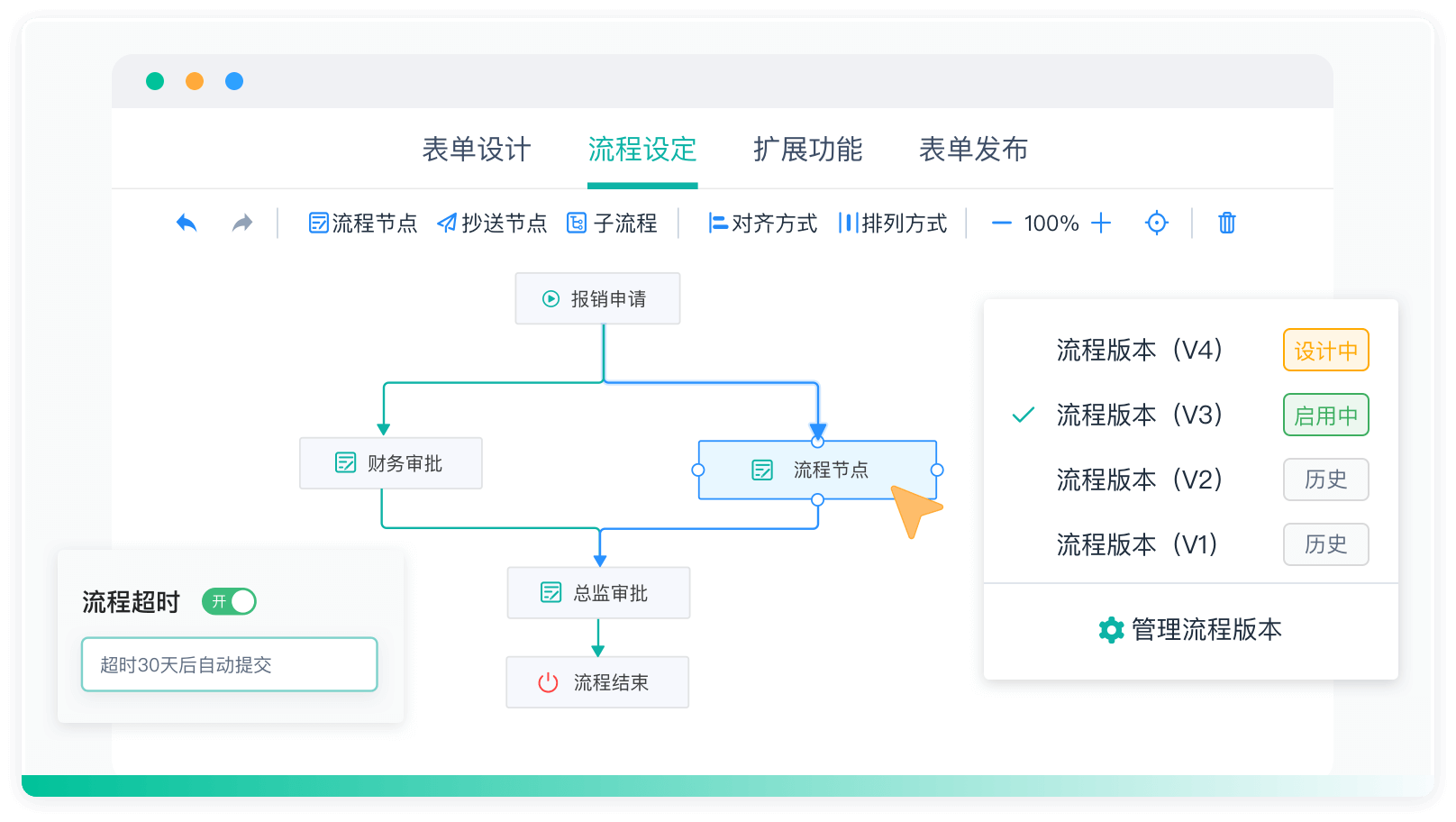
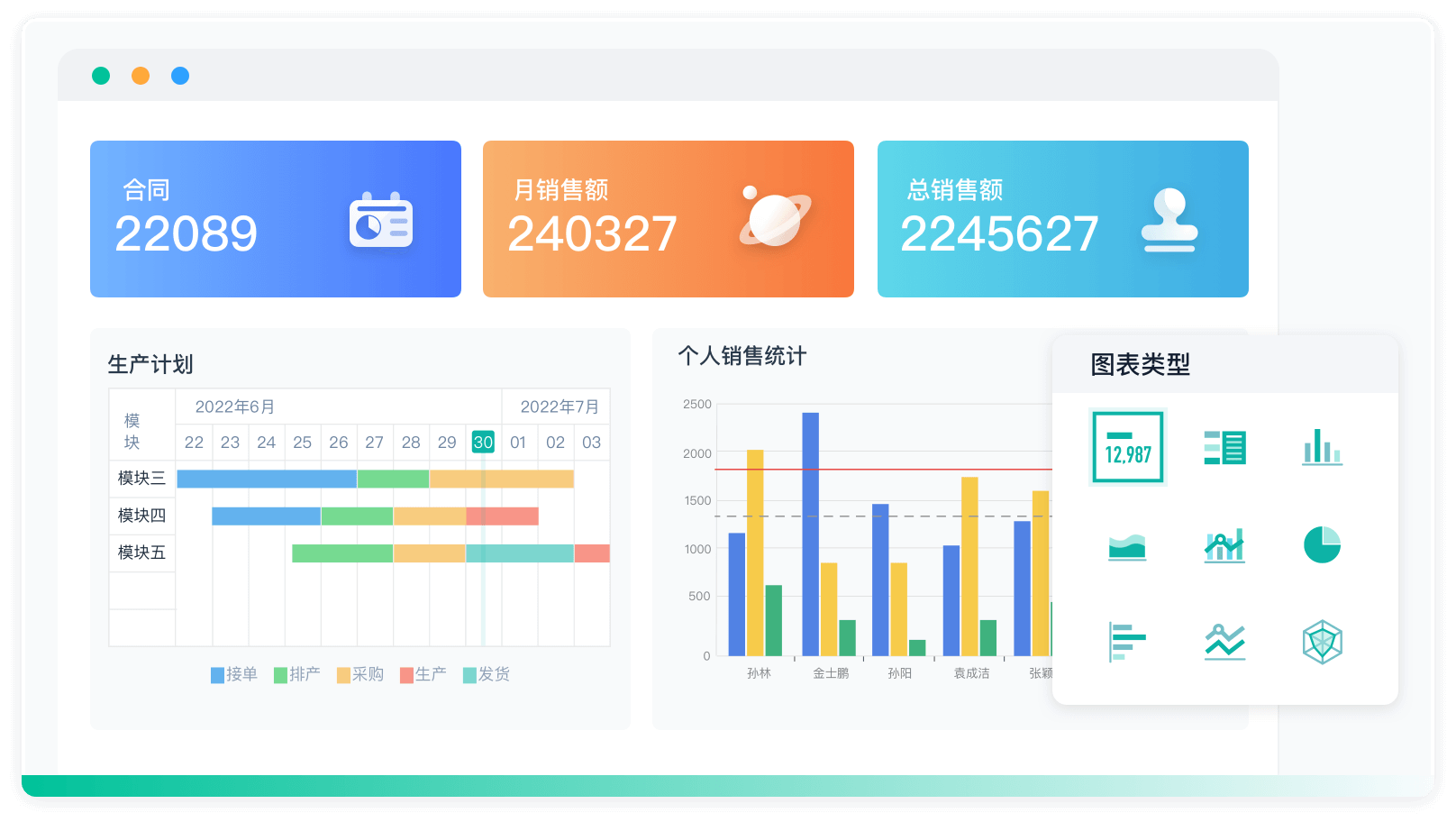
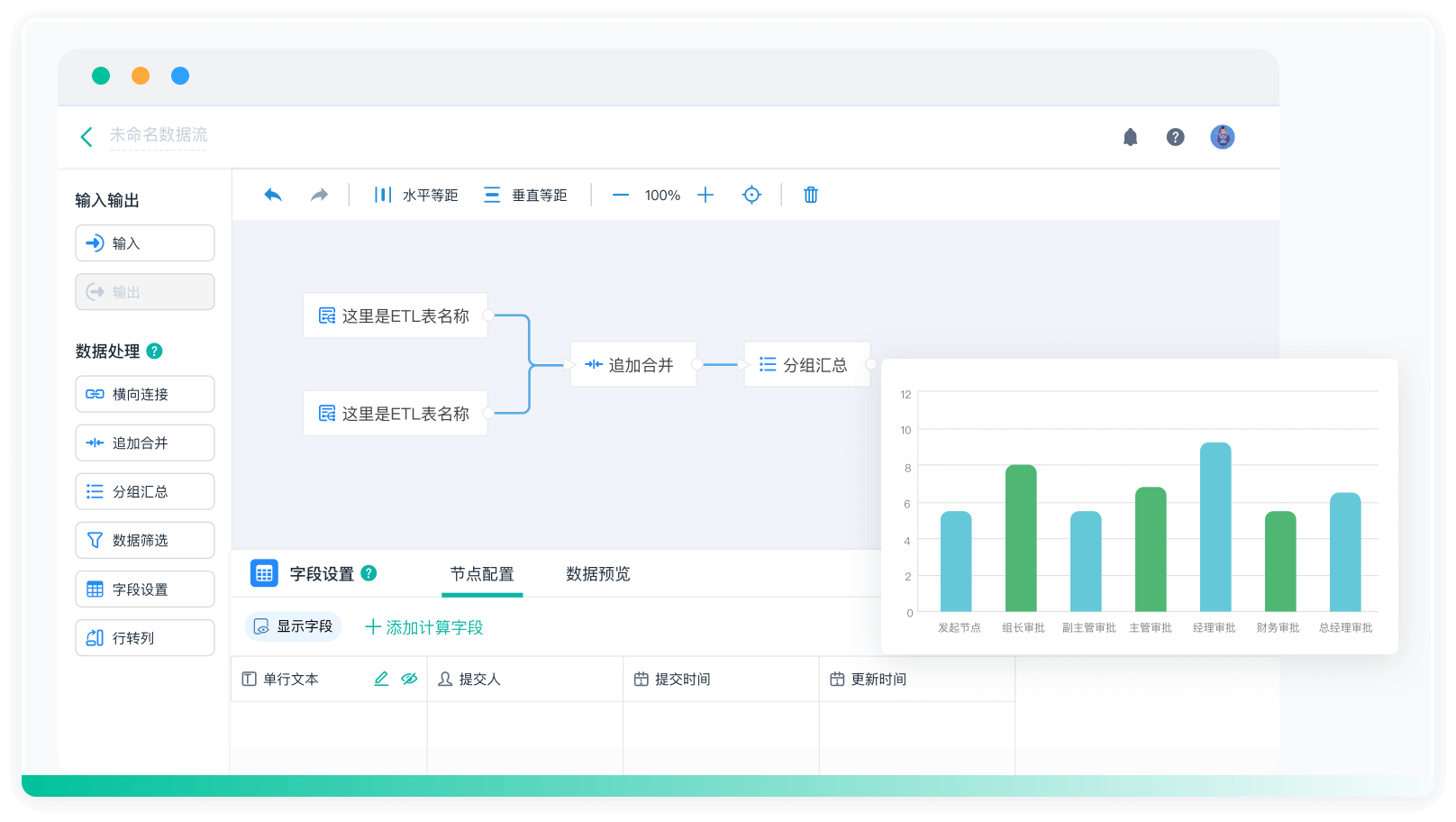
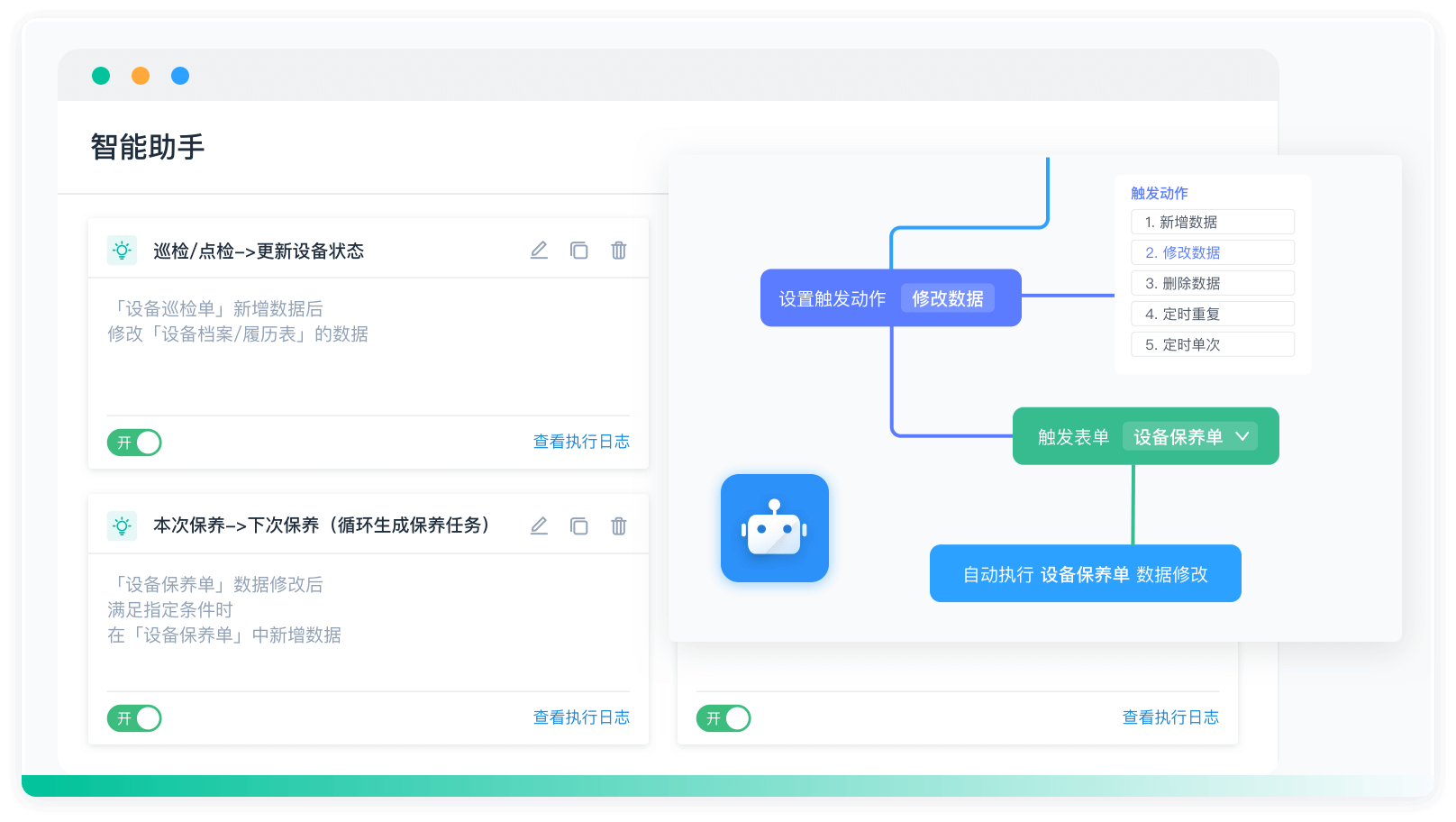
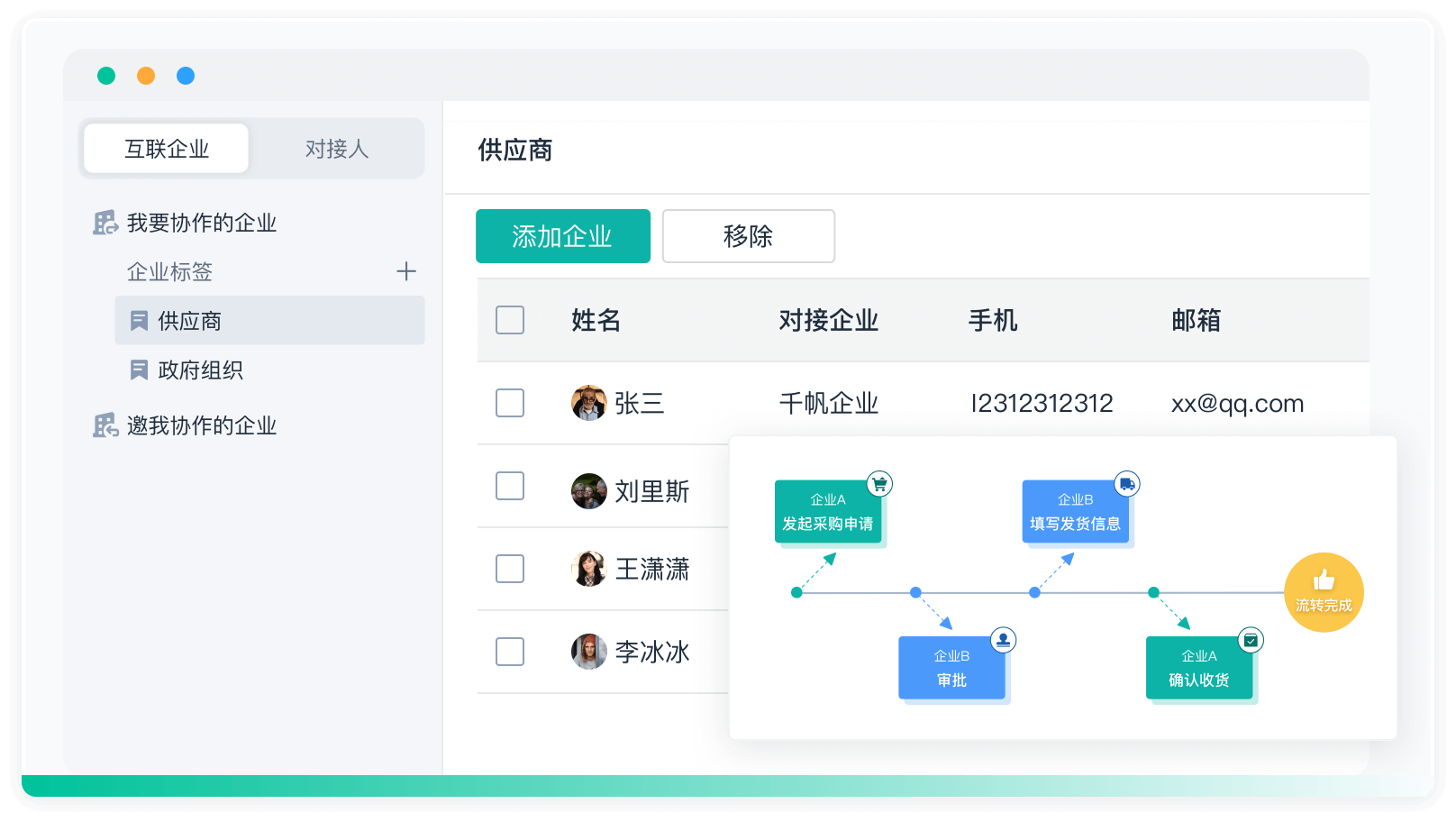
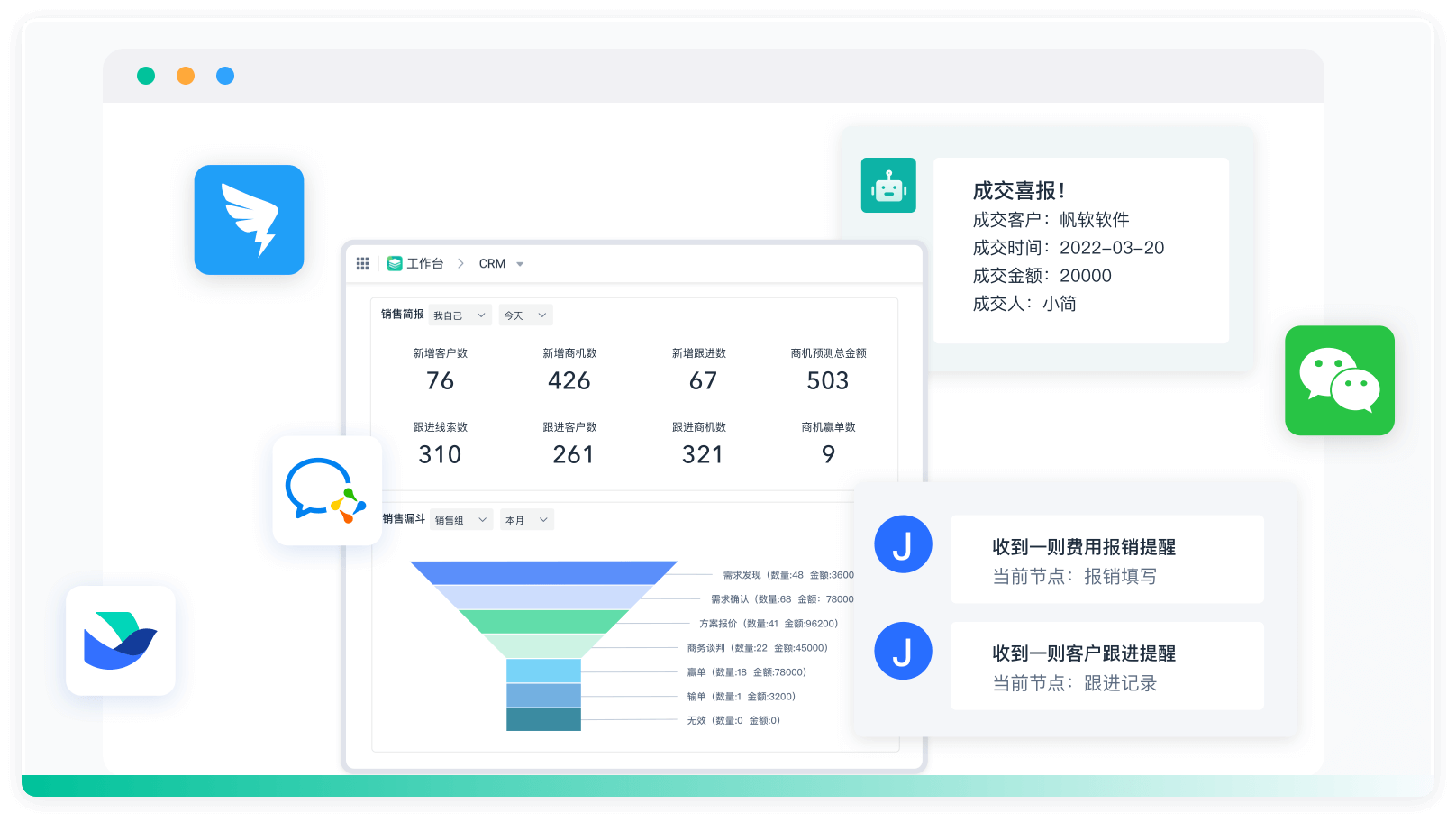
















































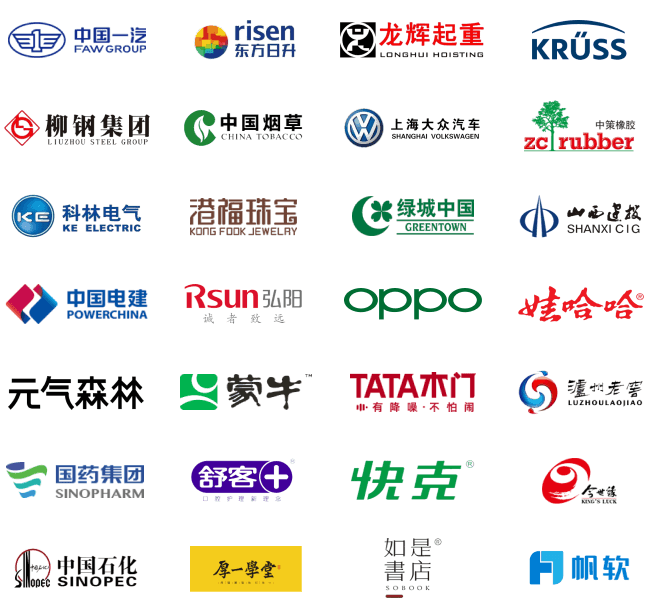
 《零代码开发知识图谱》
《零代码开发知识图谱》
 《零代码
新动能》案例集
《零代码
新动能》案例集
 《企业零代码系统搭建指南》
《企业零代码系统搭建指南》










领先企业,真实声音
简道云让业务用户感受数字化的效果,加速数字化落地;零代码快速开发迭代提供了很低的试错成本,孵化了一批新工具新方法。
郑炯蒙牛乳业信息技术高级总监
简道云把各模块数据整合到一起,工作效率得到质的提升。现在赛艇协会遇到新的业务需求时,会直接用简道云开发demo,基本一天完成。
谭威正中国赛艇协会数据总监
业务与技术交织,让思维落地实现。四年简道云使用经历,功能越来越多也反推业务流程转变,是促使我们成长的过程。实现了真正降本增效。
袁超OPPO(苏皖)信息化部门负责人
零代码的无门槛开发方式盘活了全公司信息化推进的热情和效率,简道云打破了原先集团的数据孤岛困局,未来将继续向数据要生产力。
伍学纲东方日升新能源股份有限公司副总裁
通过简道云零代码技术的运用实践,提高了企业转型速度、减少对高技术专业人员的依赖。在应用推广上,具备员工上手快的竞争优势。
董兴潮绿城建筑科技集团信息化专业经理
简道云是目前最贴合我们实际业务的信息化产品。通过灵活的自定义平台,实现了信息互通、闭环管理,企业管理效率真正得到了提升。
王磊克吕士科学仪器(上海)有限公司总经理
简道云让业务用户感受数字化的效果,加速数字化落地;零代码快速开发迭代提供了很低的试错成本,孵化了一批新工具新方法。
郑炯蒙牛乳业信息技术高级总监
简道云把各模块数据整合到一起,工作效率得到质的提升。现在赛艇协会遇到新的业务需求时,会直接用简道云开发demo,基本一天完成。
谭威正中国赛艇协会数据总监
业务与技术交织,让思维落地实现。四年简道云使用经历,功能越来越多也反推业务流程转变,是促使我们成长的过程。实现了真正降本增效。
袁超OPPO(苏皖)信息化部门负责人
零代码的无门槛开发方式盘活了全公司信息化推进的热情和效率,简道云打破了原先集团的数据孤岛困局,未来将继续向数据要生产力。
伍学纲东方日升新能源股份有限公司副总裁
通过简道云零代码技术的运用实践,提高了企业转型速度、减少对高技术专业人员的依赖。在应用推广上,具备员工上手快的竞争优势。
董兴潮绿城建筑科技集团信息化专业经理
简道云是目前最贴合我们实际业务的信息化产品。通过灵活的自定义平台,实现了信息互通、闭环管理,企业管理效率真正得到了提升。
王磊克吕士科学仪器(上海)有限公司总经理
简道云让业务用户感受数字化的效果,加速数字化落地;零代码快速开发迭代提供了很低的试错成本,孵化了一批新工具新方法。
郑炯蒙牛乳业信息技术高级总监
简道云把各模块数据整合到一起,工作效率得到质的提升。现在赛艇协会遇到新的业务需求时,会直接用简道云开发demo,基本一天完成。
谭威正中国赛艇协会数据总监
业务与技术交织,让思维落地实现。四年简道云使用经历,功能越来越多也反推业务流程转变,是促使我们成长的过程。实现了真正降本增效。
袁超OPPO(苏皖)信息化部门负责人
零代码的无门槛开发方式盘活了全公司信息化推进的热情和效率,简道云打破了原先集团的数据孤岛困局,未来将继续向数据要生产力。
伍学纲东方日升新能源股份有限公司副总裁
通过简道云零代码技术的运用实践,提高了企业转型速度、减少对高技术专业人员的依赖。在应用推广上,具备员工上手快的竞争优势。
董兴潮绿城建筑科技集团信息化专业经理
简道云是目前最贴合我们实际业务的信息化产品。通过灵活的自定义平台,实现了信息互通、闭环管理,企业管理效率真正得到了提升。
王磊克吕士科学仪器(上海)有限公司总经理